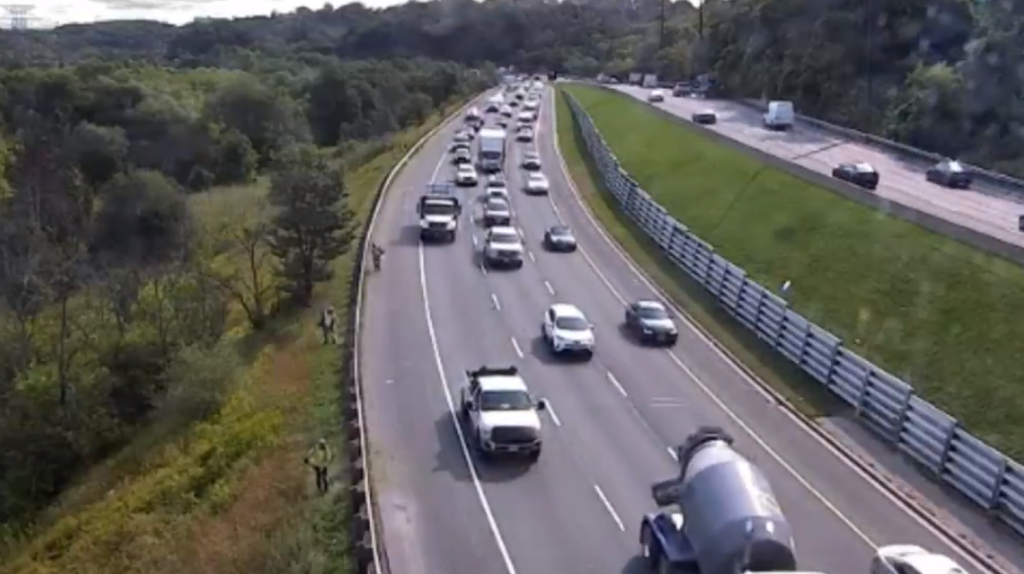School buses cancelled, flights delayed as Toronto deals with extreme cold
Posted January 7, 2014 2:34 pm.
This article is more than 5 years old.
School buses were cancelled across the GTA and flights are delayed at Toronto’s Pearson International Airport as the region deals with a second day of frigid temperatures.
Toronto remains under a wind chill warning and an extreme cold weather alert, as temperatures hit -18 C with winds gusting at 45 kilometres-per-hour on Tuesday.
Those working outdoors should take extreme caution, as exposed skin may freeze in 10-30 minutes.
A wind chill warning continues for a large part of southern Ontario including Niagara, Hamilton, Halton, Peel, York and Durham regions. On Tuesday morning Environment Canada issued blowing snow warnings for Caledon, Waterloo-Wellington and Dufferin-Innisfil where visibility will be near zero at times today.
Click here for the full forecast.
Tuesday morning was the third-coldest January morning since 2000, CityNews meteorologist Natasha Ramsahi said. Only 2004 and 2005 had colder January mornings.
Check out the graph below:
Delays, closures and cancellations
At Pearson, the extreme cold caused equipment to freeze and safety issues for employees. A ground stop — where flights are not able to land — was in effect until just after 10 a.m., Pearson tweeted.
Passengers are asked to check their flight status before heading to the airport.
In Halton Hills, police closed Ninth Line between #5 Sideroad and #10 Sideroad due to large drifts of snow and icy conditions. Portions of the roadway are completely impassable, police said, and advised motorists to avoid the immediate area — including Steeles Avenue – if possible.
The TTC said there would be “significant” delays with their streetcars due to frozen switches. There will be a shortage of streetcars for the morning rush hour, the TTC said in a statement. Shuttle buses are in use.
The TTC said the delay was partially caused by the age of the streetcar fleet.
“Pneumatic air lines that provide braking and door operation can see moisture build up in the lines that then freeze, causing the streetcar to be taken out of service,” the TTC said, adding that the new streetcars will not have this problem.
School buses, including those at the Toronto District School Board, the Toronto District Catholic School Board, are cancelled, and Peel Region has cancelled buses for schools in Brampton, Caledon and Mississauga.
Visit our Storm Centre for live updates on closures and cancellations.
Outside Toronto
Meanwhile, a blizzard warning continues for the following places in southern Ontario:
- Huron-Perth
- Arthur-Northern Wellington County
- Grey-Bruce
- Barrie-Orillia-Midland
- Port Carling-Port Severn
- Bracebridge-Gravenhurst
And snow squalls continue to hammer areas near Haliburton and Parry Sound where up to 50 cm could fall by this evening. And today, Niagara and Welland are also dealing with whiteout conditions in 10-15 cm of snow.
Frost quakes
Frost quakes were heard overnight and early Tuesday morning, with dozens of loud booms reported across the GTA.
CityNews meteorologist Natasha Ramsahai said a frost quake is caused when rain and ice seep down into the soil, then freezes and expands when temperatures drop rapidly and deeply.
“When water freezes and expands in frozen soil it literally puts a lot of stress on that dirt and will release that energy all of a sudden, very much like an earthquake releases that energy and shifts the ground,” she said.
Also known as cryoseisms, frost quakes do happen frequently after ice storms but have been rare in the GTA.
“It’s been over 40 years since the GTA has had an ice storm so we haven’t had reports of a cryoseism per se in the city for at least that long,” Ramsahai said last month, after frost quakes were reported on Christmas Eve. However the presence of social media now puts the phenomenon in the spotlight. “We may indeed have had frost quakes in the GTA over the last 40 years, but people might have just dismissed these noises as something else. Twitter and Facebook have many people hearing cracks and booms now, and attributing them to frost quakes, when maybe it’s just the wind, said Ramsahai.
Wind noises will sound more like creaking noises, while frost quakes will sound more explosive and sudden.
Did you hear a frost quake? Let us know.










